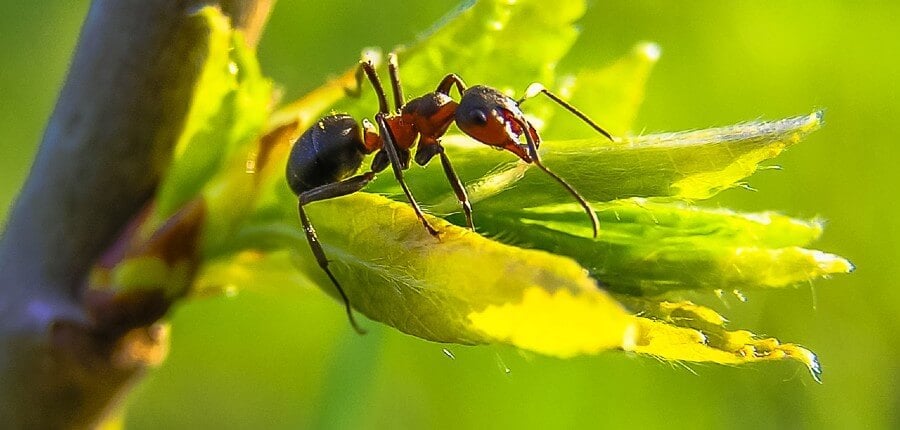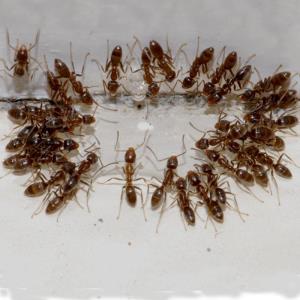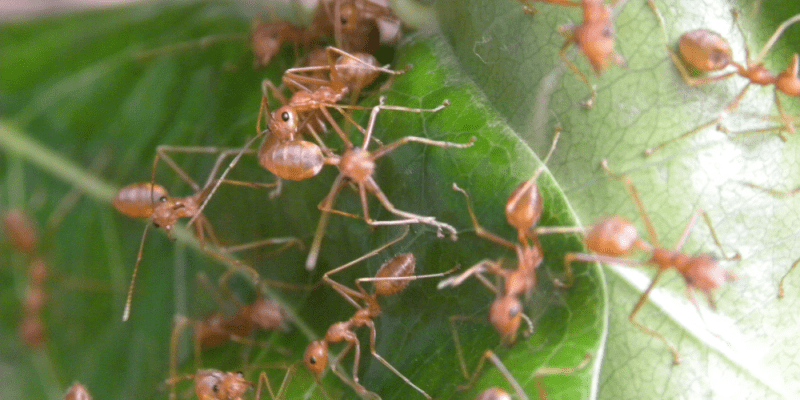Ecological Effect of Insect Control: Balancing Effectiveness With Sustainability
The environmental influence of bug control is a critical problem that requires a delicate balance in between attaining performance in managing insects and making sure sustainability of our communities. From the use of damaging chemicals that leak right into our dirt and water to the unexpected effects on non-target varieties, the effects of standard parasite control techniques are far-ranging.
Unsafe Chemicals in Parasite Control
The application of unsafe chemicals in parasite control postures substantial ecological and wellness dangers that call for cautious consideration and mitigation approaches. Pesticides, herbicides, and insecticides are frequently utilized to eradicate pests, yet their prevalent application can cause unexpected consequences. These chemicals can contaminate dirt, water sources, and the air, affecting not just the targeted insects but additionally valuable pests, wildlife, and human beings.

To address these risks, incorporated parasite monitoring (IPM) methods are being advertised as a more sustainable choice. IPM entails a mix of techniques such as organic control, habitat manipulation, and the targeted use pesticides as a last hope (ant control mint hill nc). By taking on an all natural technique to pest control, we can lessen the ecological and health impacts connected with damaging chemicals while successfully managing pest populations
Influence On Non-Target Variety
Considering the unexpected repercussions of insect control methods, the effect on non-target species is a crucial element that calls for thorough evaluation. While bug control procedures intend to target certain insects, various other microorganisms in the ecosystem might be unintentionally influenced. Non-target types, including advantageous pests, birds, animals, and also plants, can experience indirect or straight harm from pesticide applications or organic control approaches.
Insecticides designed to fight a specific insect bug may hurt pollinators like bees or natural predators such as ladybugs. Biological control agents, if not species-specific, can position dangers to unintentional targets, interrupting the environmental equilibrium.
To alleviate the influence on non-target types, integrated insect management (IPM) techniques that emphasize a holistic approach to pest control are recommended. These approaches focus on the use of ecologically friendly techniques, minimizing injury to useful organisms while efficiently managing pest populations. Performing thorough threat assessments and keeping an eye on the results of insect control efforts are essential action in guarding non-target types and promoting overall ecosystem wellness.
Soil and Water Contamination
Unintentional ecological effects of insect control methods extend past affecting non-target types, with considerable effects for dirt and water contamination. Chemicals, herbicides, and chemical plant foods utilized in insect control can seep right into the dirt and pollute groundwater, presenting a risk to both aquatic and terrestrial communities. Soil contamination can disrupt the balance of microorganisms vital for nutrient cycling and plant development, leading to reduced dirt fertility and performance. These chemicals can persist in the setting for extensive periods, collecting in the dirt and potentially getting in the food chain.
Water contamination is one more vital issue associated with parasite control techniques. To alleviate soil and water contamination from pest control tasks, incorporated insect management strategies that focus on sustainability and lessen chemical inputs are important.
Air Pollution From Chemical Usage
Exposure to air-borne chemicals during agricultural applications postures a considerable concern for air contamination control procedures. They can volatilize into the air and kind unstable natural compounds (VOCs) and various other airborne toxins when chemicals are sprayed onto crops - ant control services. These chemicals can add to the development of ground-level ozone, a major element of smog that can have damaging effects on human wellness, crop performance, and overall air top quality. Additionally, chemical drift, where chemicals are brought by the wind to unintended locations, can lead to the contamination of close-by ecosystems and water bodies.

Approaches for Lasting Pest Control
In the realm of agricultural techniques, implementing sustainable insect control methods is extremely important for keeping eco-friendly equilibrium and safeguarding crop yields. Lasting pest control emphasizes the use of environmentally friendly methods to manage pest populations effectively while minimizing harm to non-target organisms and communities. Integrated Insect Management (IPM) is a widely adopted approach that incorporates biological, social, physical, and chemical control approaches to attain long-lasting insect administration services.
One key strategy in lasting bug control is promoting biodiversity within agroecosystems. By enhancing natural adversaries of bugs, such as parasitoids and predators, farmers can reduce the demand for artificial pesticides. Plant turning and diversification are also reliable methods to interrupt pest life cycles and develop less beneficial problems for pests to thrive. Additionally, using pest-resistant plant ranges and using methods like trap chopping can help in reducing pest stress without depending greatly on chemical treatments. Eventually, by integrating these lasting insect control strategies, farmers can accomplish a balance in between pest management performance and environmental stewardship.
Verdict
Finally, the ecological impact of insect control approaches must be meticulously considered to stabilize performance with sustainability. Damaging chemicals made use of in pest control can cause dirt and water contamination, air contamination, and harm non-target types - ant control. It is important to apply sustainable insect control methods to decrease these negative effects on the atmosphere and advertise a much healthier community for future generations
By adopting a holistic method to pest control, we can lessen the ecological and wellness influences linked with harmful chemicals while efficiently handling pest populations.

To reduce the air contamination caused by chemical usage, it is important to take on integrated bug monitoring techniques that focus on the usage of non-chemical pest Click This Link control techniques, such as plant rotation, natural killers, and immune crop ranges. Lasting parasite control emphasizes the use of environmentally pleasant methods to handle parasite populations efficiently while lessening harm to non-target microorganisms and environments. Integrated Parasite Administration (IPM) is a widely embraced approach that combines organic, cultural, physical, and chemical control techniques to achieve long-lasting insect administration options.